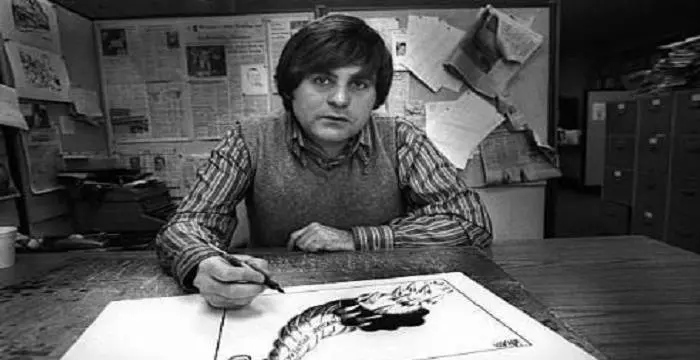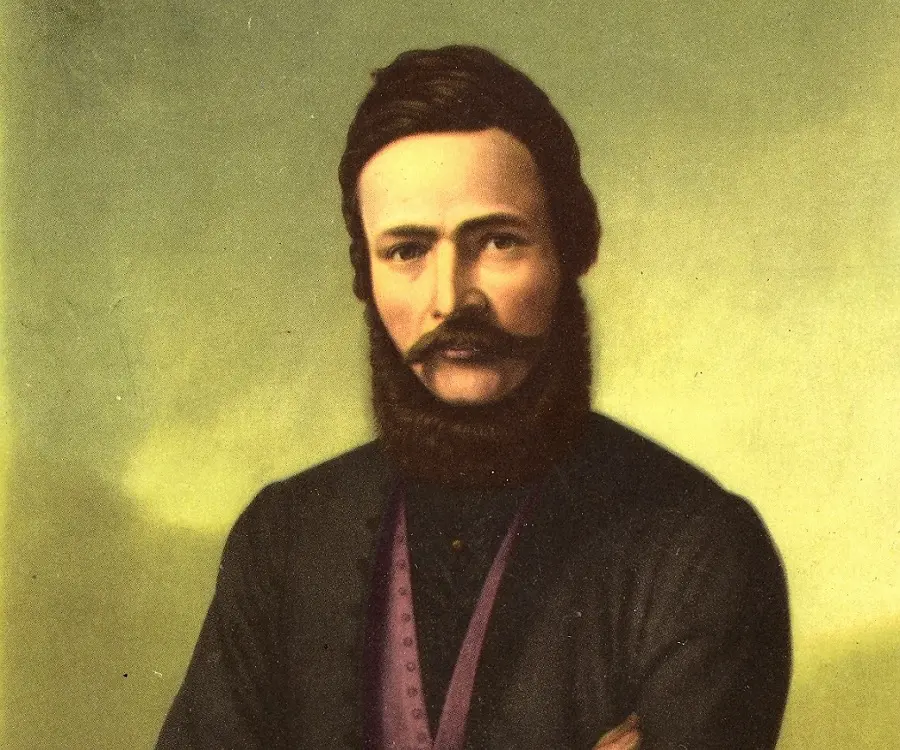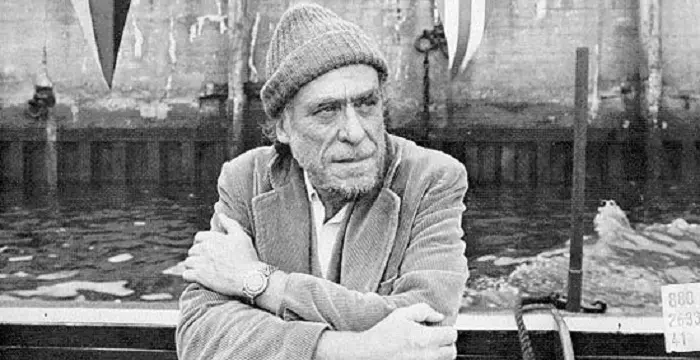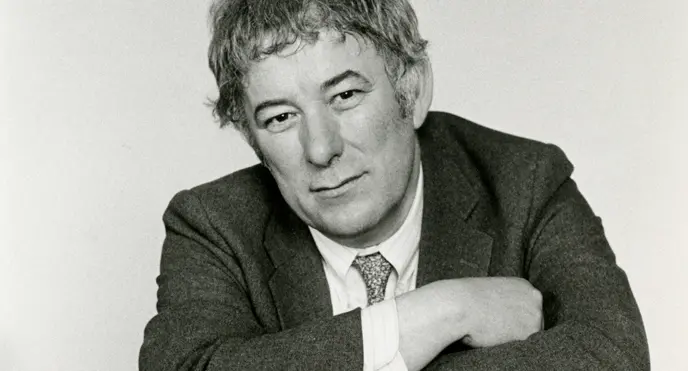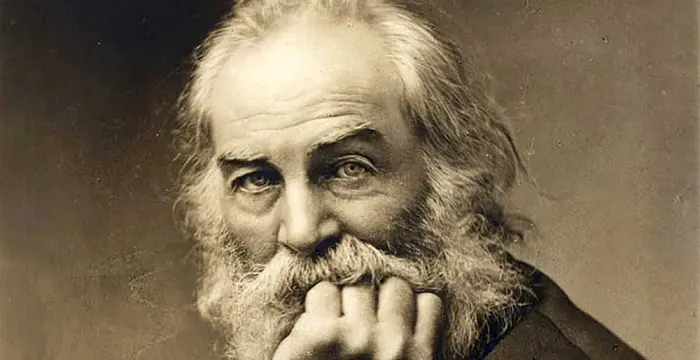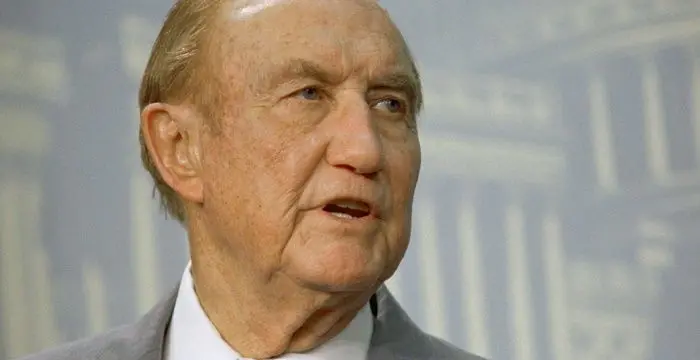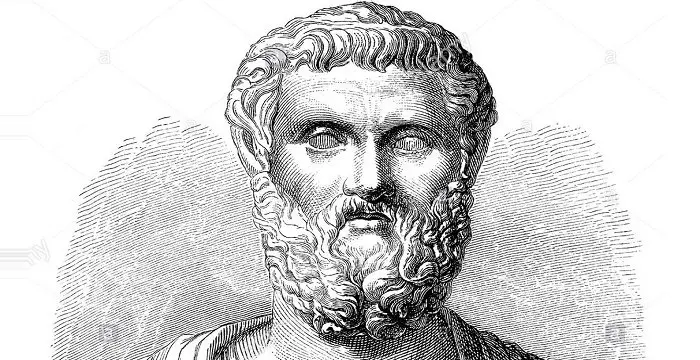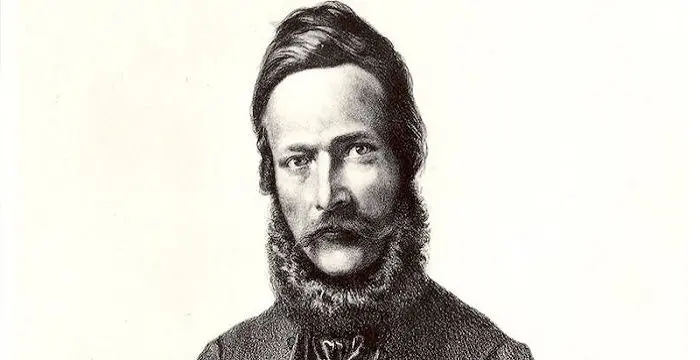
Ľudovít Štúr - Author, Birthday and Facts
Ľudovít Štúr's Personal Details
Ľudovít Štúr was a Slovak politician, poet and philosopher who served as the leader of the Slovak national revival in the 19th century.
| Information | Detail |
|---|---|
| Birthday | October 28, 1815 |
| Died on | January 12, 1856 |
| Nationality | Slovak |
| Famous | Philosophers, Leaders, Political Leaders, Poets, Author |
| Siblings | Janko Štúr, Karol Štúr, Karolína Štúrová, Samuel Štúr |
| Known as | Ludovit Stur |
| Universities |
|
| Cause of death |
|
| Birth Place | Uhrovec |
| Gender | Male |
| Father | Samuel Štúr |
| Mother | Anna Štúrová |
| Sun Sign | Scorpio |
| Born in | Uhrovec |
| Famous as | Author |
| Died at Age | 40 |
// Famous Author
Joyce Meyer
Joyce Meyer is a Christian author and speaker. This biography provides detailed information about her childhood, life, achievements, works & timeline
Suze Orman
Suze Orman is an American television host, financial advisor, author and motivational speaker, famous for her ‘The Suze Orman Show’ on CNBC. This biography profiles her childhood, life, career, works, achievements and timeline.
Robert Graysmith
Robert Graysmith is an author best identified for his works on the ‘Zodiac Killer case’. Check out this biography to know about his childhood, family life, achievements and fun facts about him.
Ľudovít Štúr's photo
Who is Ľudovít Štúr?
Ľudovít Štúr was a Slovak politician, poet and philosopher who served as the leader of the Slovak national revival in the 19th century. He was also the author of the Slovak language standard which gave rise to the contemporary Slovak literary language. Born into a teaching family, he received his basic education from his father and later attended the prestigious Lutheran Lýceum. During this period, he also became a member of the Czecho-Slovak Literary Society, and was later elected to the post of its chairman which led to a steady increase in the members of the society. After completing his theological studies, he remained at the Lyceum, teaching the history of Slavic literature and writing poetry. He emphasized on the fact that Slovaks were one nation and that they therefore had a right to their own language, culture, schools, and particularly political autonomy within Hungary. Subsequently, he and his friends decided to codify the Slovak language standard, based on central Slovak dialects, which is used even today.Towards the end of his life, he encountered several personal tragedies and lived in Modra under police surveillance where he focused on literary, scholarly, and publicist activities.
// Famous Philosophers
Martin Buber
One of the greatest philosophers to have ever walked on earth, Martin Buber contributions to philosophy is a long-standing one. Explore all about his profile, childhood, life and timeline here.
Lao Tzu (Laozi)
Lao Tzu was a legendary Chinese philosopher who wrote the important “Daodejing”. This biography profiles his childhood, life, career, achievements and timeline.
Alan Watts
Alan Watts was a famous British philosopher known for his Zen teachings and interpretations of Eastern philosophy. Read more about this great philosopher in the following article.
Childhood & Early Life
Ľudovít Štúr was born on October 28, 1815, in Uhrovec in the Kingdom of Hungary, to Samuel Štúr, a teacher, and his wife, Anna Štúr. He was the second child in the family.
He received his basic education and the knowledge of Latin from his father. Between 1827 and1829, he studied history, along with German, Greek and Hungarian languages from a lower grammar school at Győr.
From 1829 to 1836, he was enrolled at the prestigious Lutheran Lýceum in Pressburg and also became a member of the Czech-Slav Society and developed an interest in all Slav nations.
He remained active in the historical and literary circle of the Czech-Slav Society and established contacts with important foreign and Czech scholars. In December 1834, he was elected as the secretary of the Czech-Slav Society at the Lýceum.
Career
In May 1835, he was appointed the co-editor of the ‘Plody’ ("Fruits") almanac, a compilation of the best works of the members of Czech-Slav Society. Later, he was appointed as the vice-president of the Czech-Slav Society, and taught the history of the Slavs and their literatures to older students at the Lyceum.
In 1836, Ľudovít Štúr proposed the creation of a unified Czechoslovak language but the Czech did not approve of it. Thus, he and his friends decided to introduce a completely new Slovak language standard instead.
In April 1836, as the vice-president of Czech-Slav Society, he led the famous trip to Devín Castle undertaken by the members of the Slovak national movement.
Between 1836 and 1838, L'udovit Stur served as a non-stipendiary assistant in the department of Czechoslovak Language and Literature at the Lyceum, and taught history of Slavic literature.
His first poem titled ‘Óda na Hronku’ ("An ode to Hronka") was published in printed form for the first time in 1837. Later, he founded the Institute of the Czechoslovak Language and Literature which resumed the activities of the Czech-Slav Society.
He then traveled to Germany, where he studied linguistics, history and philosophy at the (Protestant) University of Halle from 1838 to 1840. During this time, his poetic cycle ‘Dumky večerní’ (‘Evening thoughts’) was published in the Czech journal ‘Květy’.
In 1840, he returned to Bratislava and started working in the Evangelic Lutheran Lyceum, teaching courses of grammar and Slav history. Alongside, he also remained actively involved with the Institute of Czechoslovak language.
Between 1841 and 1844, he served as the co-editor of Palkovič's literary magazine, ‘Tatranka’. From 1845 to 1848, L'udovit Stur published ‘Slovenskje narodňje novini’, the first Slovak political newspaper, and a literary supplement, ‘Orol tatrański’.
In the late 1840s, he became a deputy in the Hungarian Diet and took part in the Prague Uprising of 1848. Štúr and his colleagues formed the Slavic Congress of Prague and led the struggle of the Slovaks for national liberation in the revolution of 1848–49.
One of his later works on literature and aesthetics was ‘On the Folk Songs and Stories of the Slavic Tribes’ (1853). Some of his other literary works were poetry collection ‘Lyrics and Songs’ (1853), and the narrative poems, ‘Sviatoboj’ (1853) and ‘Matúš From Trenčin’ (1853).
Major Works
Ľudovít Štúr gave five important speeches at the Hungarian Diet, in which he stressed on the abolishment of serfdom in Hungary, the introduction of civil rights and the use of the Slovak language for teaching in elementary schools.
Personal Life & Legacy
Ľudovít Štúr faced several personal tragedies in his later life beginning with the death of his brother, Karol, in 1851. Thereafter, Stur took responsibility for Karol’s seven children and lived in Karol's house in Modra under police supervision.
In March 1853, his girlfriend, Adela, died in Vienna. He took care of his ill mother in Trenčín, before she too passed away in August 1853.
In December 1855, he accidentally shot and wounded himself during a hunt near Modra. Ľudovít Štúr died on January 12, 1856, in Modra, at the age of 40
// Famous Poets
Charles Bukowski
Charles Bukowski was a German-born American novelist, short story writer and poet. With this biography, learn in details about his childhood, life, works, career and timeline
Seamus Heaney
Nobel Laureate Seamus Heaney was an Irish poet, playwright and translator. Know about his profile, childhood, life and timeline in the biography below.
Walt Whitman
Walt Whitman was an American poet, journalist and humanist. Read this brief biography to find more on his life & timeline.
Ľudovít Štúr biography timelines
- // 28th Oct 1815Ľudovít Štúr was born on October 28, 1815, in Uhrovec in the Kingdom of Hungary, to Samuel Štúr, a teacher, and his wife, Anna Štúr. He was the second child in the family.
- // 1827 To 1829He received his basic education and the knowledge of Latin from his father. Between 1827 and1829, he studied history, along with German, Greek and Hungarian languages from a lower grammar school at Győr.
- // 1829 To 1836From 1829 to 1836, he was enrolled at the prestigious Lutheran Lýceum in Pressburg and also became a member of the Czech-Slav Society and developed an interest in all Slav nations.
- // Dec 1834He remained active in the historical and literary circle of the Czech-Slav Society and established contacts with important foreign and Czech scholars. In December 1834, he was elected as the secretary of the Czech-Slav Society at the Lýceum.
- // May 1835In May 1835, he was appointed the co-editor of the ‘Plody’ ("Fruits") almanac, a compilation of the best works of the members of Czech-Slav Society. Later, he was appointed as the vice-president of the Czech-Slav Society, and taught the history of the Slavs and their literatures to older students at the Lyceum.
- // 1836In 1836, Ľudovít Štúr proposed the creation of a unified Czechoslovak language but the Czech did not approve of it. Thus, he and his friends decided to introduce a completely new Slovak language standard instead.
- // 1836 To 1838Between 1836 and 1838, L'udovit Stur served as a non-stipendiary assistant in the department of Czechoslovak Language and Literature at the Lyceum, and taught history of Slavic literature.
- // Apr 1836In April 1836, as the vice-president of Czech-Slav Society, he led the famous trip to Devín Castle undertaken by the members of the Slovak national movement.
- // 1837His first poem titled ‘Óda na Hronku’ ("An ode to Hronka") was published in printed form for the first time in 1837. Later, he founded the Institute of the Czechoslovak Language and Literature which resumed the activities of the Czech-Slav Society.
- // 1838 To 1840He then traveled to Germany, where he studied linguistics, history and philosophy at the (Protestant) University of Halle from 1838 to 1840. During this time, his poetic cycle ‘Dumky večerní’ (‘Evening thoughts’) was published in the Czech journal ‘Květy’.
- // 1840In 1840, he returned to Bratislava and started working in the Evangelic Lutheran Lyceum, teaching courses of grammar and Slav history. Alongside, he also remained actively involved with the Institute of Czechoslovak language.
- // 1841 To 1844Between 1841 and 1844, he served as the co-editor of Palkovič's literary magazine, ‘Tatranka’. From 1845 to 1848, L'udovit Stur published ‘Slovenskje narodňje novini’, the first Slovak political newspaper, and a literary supplement, ‘Orol tatrański’.
- // 1848In the late 1840s, he became a deputy in the Hungarian Diet and took part in the Prague Uprising of 1848. Štúr and his colleagues formed the Slavic Congress of Prague and led the struggle of the Slovaks for national liberation in the revolution of 1848–49.
- // 1851Ľudovít Štúr faced several personal tragedies in his later life beginning with the death of his brother, Karol, in 1851. Thereafter, Stur took responsibility for Karol’s seven children and lived in Karol's house in Modra under police supervision.
- // 1853One of his later works on literature and aesthetics was ‘On the Folk Songs and Stories of the Slavic Tribes’ (1853). Some of his other literary works were poetry collection ‘Lyrics and Songs’ (1853), and the narrative poems, ‘Sviatoboj’ (1853) and ‘Matúš From Trenčin’ (1853).
- // Aug 1853In March 1853, his girlfriend, Adela, died in Vienna. He took care of his ill mother in Trenčín, before she too passed away in August 1853.
- // Dec 1855 To 12th Jan 1856In December 1855, he accidentally shot and wounded himself during a hunt near Modra. Ľudovít Štúr died on January 12, 1856, in Modra, at the age of 40
// Famous Political Leaders
Edi Rama
Edi Rama is the current Prime Minister of Albania. Check out this biography to know about his childhood, life, achievements, works & timeline.
Khalifa bin Zayed Al Nahyan
Sheikh Khalifa bin Zayed Al Nahyan is the current President of the United Arab Emirates (UAE). Check out this biography to know about his birthday, childhood, family life, achievements and fun facts about him.
Leo Varadkar
Cam Leo Varadkar is the current Taoiseach—the Prime Minister—of the Republic of Ireland. Check out this biography to know about his childhood, family life, achievements and other facts about his life.
Strom Thurmond
Strom Thurmond was an American politician, who represented the state of South Carolina in the United States senate for 48 years.
Solon
Solon was an Athenian lawmaker, poet and politician. He is considered as one of the ‘Seven Wise Men’ in Greek culture. This biography provides detailed information about his childhood, life, career, works, achievements and timeline.
Mohammed bin Salman
Mohammed bin Salman is the Crown Prince of Saudi Arabia and the heir apparent to the throne. Check out this biography to know about his childhood, family life, achievements and other facts about him.
Ľudovít Štúr's FAQ
What is Ľudovít Štúr birthday?
Ľudovít Štúr was born at 1815-10-28
When was Ľudovít Štúr died?
Ľudovít Štúr was died at 1856-01-12
Where was Ľudovít Štúr died?
Ľudovít Štúr was died in Modra
Which age was Ľudovít Štúr died?
Ľudovít Štúr was died at age 40
Where is Ľudovít Štúr's birth place?
Ľudovít Štúr was born in Uhrovec
What is Ľudovít Štúr nationalities?
Ľudovít Štúr's nationalities is Slovak
Who is Ľudovít Štúr siblings?
Ľudovít Štúr's siblings is Janko Štúr, Karol Štúr, Karolína Štúrová, Samuel Štúr
What was Ľudovít Štúr universities?
Ľudovít Štúr studied at 1836 - Evangelical Lyceum
What is Ľudovít Štúr's cause of dead?
Ľudovít Štúr dead because of Accident
Who is Ľudovít Štúr's father?
Ľudovít Štúr's father is Samuel Štúr
Who is Ľudovít Štúr's mother?
Ľudovít Štúr's mother is Anna Štúrová
What is Ľudovít Štúr's sun sign?
Ľudovít Štúr is Scorpio
How famous is Ľudovít Štúr?
Ľudovít Štúr is famouse as Author


